Animals
-
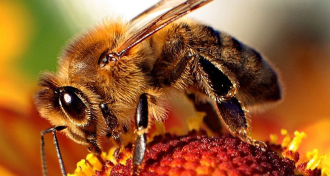 Environment
EnvironmentManganese turns honeybees into bumbling foragers
Ingesting low doses of the heavy metal manganese disrupts honeybee foraging, a new experiment suggests.
-
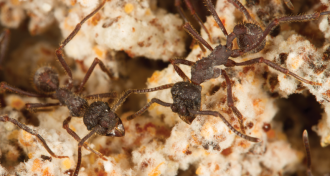 Animals
AnimalsNeandertal of ant farmers grows modern food
The most old-fashioned fungus-growing ant yet discovered grows a startlingly new-fangled crop.
By Susan Milius -
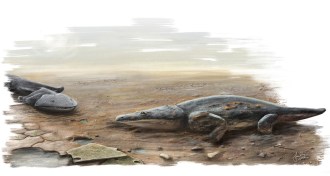 Paleontology
PaleontologyFossil of monstrous fish-eating amphibian unearthed
A new Triassic species of giant amphibian lived like a crocodile instead of like its cute little salamander and frog relatives of today.
By Susan Milius -
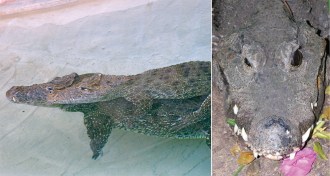 Animals
AnimalsPiggyback rides and other crocodile fun
We don’t know the playful side of crocodiles perhaps only because we haven’t looked.
By Susan Milius -
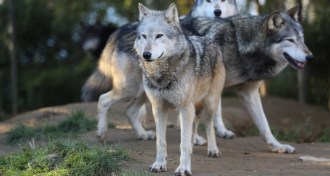 Anthropology
Anthropology‘The Invaders’ sees dogs as key to modern humans’ success
Neandertals went extinct when Homo sapiens transformed wolves into hunting aids, author proposes.
By Bruce Bower -
 Animals
AnimalsConservationists should make friends with hunters
A survey of outdoor enthusiasts in rural New York finds that both hunters and birdwatchers are likely to engage in conservation behaviors, such as donating money.
-
 Animals
AnimalsWhy orangutans cup their mouths to sound an alarm
Orangutans might use their hands to lower the pitch of alarm calls, a study suggests.
-
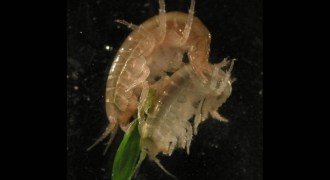 Animals
AnimalsParasites make cannibal shrimp hungry
Parasites make sometimes-cannibalistic shrimp more cannibalistic, a new study suggests.
-
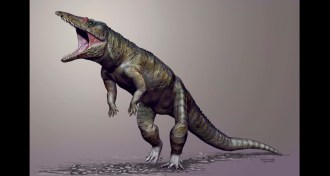 Paleontology
PaleontologyFearsome croc called the Carolina Butcher once ruled the north
Early ancestors of crocodiles, not dinosaurs, may have been northern Pangaea’s top predator 230 million years ago, according to a new fossil find.
-
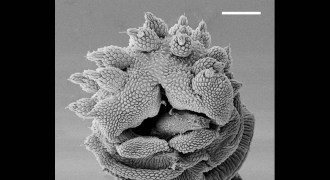 Animals
AnimalsHow velvet worms slime their prey
Researchers have figured out the mechanics behind velvet worms’ wobbly slime jets.
-
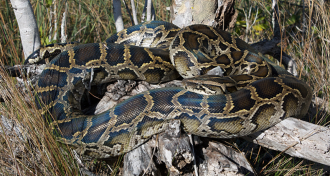 Ecosystems
EcosystemsEven fast-breeding rabbits can’t withstand Everglades python invasion
Even marsh rabbits in the Everglades can’t breed fast enough to keep their population going when Burmese pythons warm up for summer hunting.
By Susan Milius -
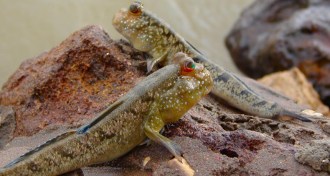 Animals
AnimalsMudskippers use watery tongue to slurp up snacks on land
When mudskippers move from water to land, they use a tongue made of water to move food to the back of their throat and into their stomachs.